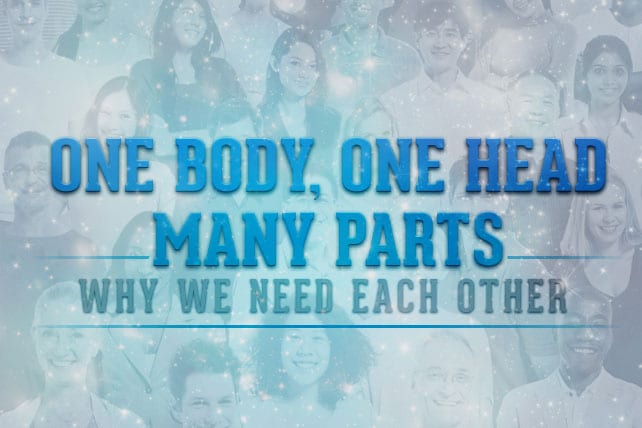To be functioning at its peak, a body needs every part to be working effectively. Our role as the body of Christ is to equip and build one another up “until we all reach unity in the faith and in the knowledge of the Son of God and become mature, attaining to the whole measure of the fullness of Christ” (Eph 4:13). To this end, those of us who are stronger, more mature or given gifts, ought to use what we have to empower and equip others in their journey.
This doesn’t make us more important—quite the opposite, it requires an attitude of servanthood. Instead of the “hierarchy” of the world, where people jostle for power, prestige and privilege, we have a “low-rarchy” in the church—in God’s kingdom, the way up is down, the first shall be last and the last shall be first.
We follow a king who rode a donkey, who washed his followers’ feet, whose coronation was a crucifixion, who laid aside his right to equality with God and took on the form of a servant. Unlike the power-hungry ways of the world, “leadership” in the church is always framed in terms of servanthood or building others up. We are never to “lord it over” or “exercise authority over” one another as the “rulers of the Gentiles” do (Matt 20:25)—the way of love ushers in an entirely new paradigm of inverted hierarchy, where those of us with high status need to step down the ladder to lift up those on the bottom rungs. We go down, not to debase ourselves, but to lift others up. “Whoever wants to become great among you must be your servant, and whoever wants to be first must be your slave—just as the Son of Man did not come to be served, but to serve, and to give his life as a ransom for many (Matt 20:27-28).”
Here is what that looks like in the church:
The mature mentor the immature.
The elders instruct the younger.
The rich share with the poor.
Those who have gifts equip others for acts of service.
The powerful defend the powerless.
The strong bear with the failings of the weak.
And nobody ever positions themselves in Christ’s rightful place, as head of the church.
Our current structures for church are holding us back from empowering and building one another up by positioning us either as performers or audience members, as broadcasters or passive listeners. Pulpits and pews separate us into two camps, and prevent the mutual ministry and one-anothering described over and over again in Scripture. We need to rethink our meeting spaces, our seating arrangements, our use of music and our information delivery methods to find creative ways that release all of God’s people to be active participants in their journey toward unity and spiritual maturity. We need to be willing to step off the stage and into the circle, to talk less and listen more, to use our status to lift others high, and to get out of the way and let God work in his people.
This is an excerpt from the chapter I contributed to Simple Church: Unity Within Diversity. Order a copy now to learn about simple church practices from some great writers.













